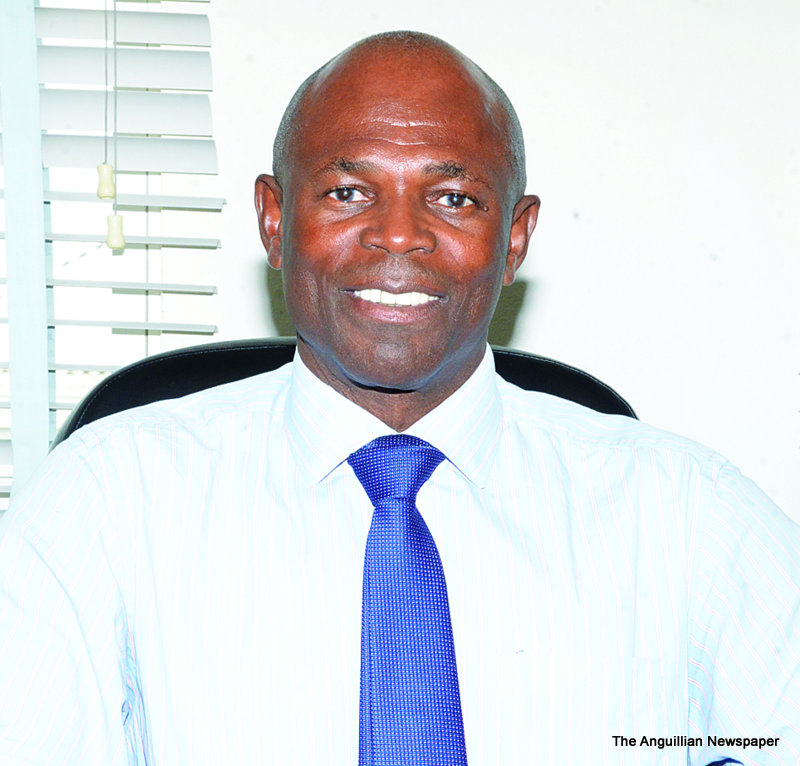
With a growing need to improve parliamentary practice in Anguilla, and a surge in the number of prospective members, the House of Assembly has undertaken to work on a set of benchmarks with assistance from the Commonwealth Parliamentary Association (CPA).
In Anguilla, carrying out their assignment are Mr. Matthew Salik, Head of Parliamentary Development, who has visited the island previously and Mr. Jack Hardcastle, Programmes Assistant. They are both based in London. They were invited to Anguilla by Mr. Jose’ Vanterpool, the Deputy Speaker in the Anguilla House of Assembly, who was at McGill University in Montreal, Canada, undergoing a private course of studies for his own parliamentary development.
Mr. Salik told The Anguillian newspaper: “ We work for the Commonwealth Parliamentary Association which is a network of about 180 parliamentary branches across the Commonwealth. In 2018 the Association updated its recommended benchmarks for democratic legislatures. These benchmarks are a set of standards that parliaments should be following in the conduct of their business.
“Our Association has been conducting these benchmarks in a number of countries and legislatures across the Commonwealth over the last two years. We were invited by the Deputy Speaker who advised us that we should come to undertake this work in Anguilla with the approval of the Speaker and the Clerk of the House.
“We are meeting with a number of stakeholders from the Governor to parliamentarians, election candidates, as well as civil society groups and the public and the media, to talk about their views. The discussions are how the Assembly functions and conducts its business. Once we have taken that information to account, we will produce a report which we will submit to the Speaker and the Clerk for their comments and views. It will then be made available to the public.”
The Anguillian asked Mr. Salik to explain what the benchmarks were. He replied: “ They range from how effective are Select Committees in the Assembly; how effective is legislation conducted; how are members elected to the Assembly; what sort of public engagement is there in the Assembly; what sort of training and support members get; what are the available resources; how is the Assembly governed; and a vast range of different topics that affect democratic legislature in Anguilla.”
Mr. Salik said some of the benchmarks included how free and fair elections are, but stressed that this was one small element of the overall benchmarks. “ It comes in conversation with persons because it is a very important point as they are campaigning but, as I said, it is only one element of the bigger picture.”
During the course of the week, the CPA officials met individually with the current elected members of the House of Assembly and other personnel. On Wednesday they held a meeting with all the new candidates. Speaking in advance of that meeting, Mr. Salik said: “We will ask them why they are standing for election; what are their aspirations if they become elected members; what their perspectives on the legislature are; and how it can be a conduit for them to achieve the kind of change they want within their districts – and for Anguilla as a whole. It is rather an information-gathering exercise for us. We won’t touch too much on the elections but it will eventually come up in the conversation.”
Clerk of the House of Assembly, Mr. Joash Proctor, commented that meetings were already held with current members of the Assembly to be followed by the meeting with the new candidates. “ I get the sense that a lot of the candidates getting in the elections for the House of Assembly may not quite understand fully the intricacies involved – so the meeting provides an opportunity for them, as well, to get a clearer picture of some of the issues they may have.”
Mr. Proctor stated that, as part of its strategic plan, the House Assembly had undertaken a general assessment of how it operates; what it needs to do; and had decided that the CPA’s benchmarks for democratic legislatures constituted a way forward.








